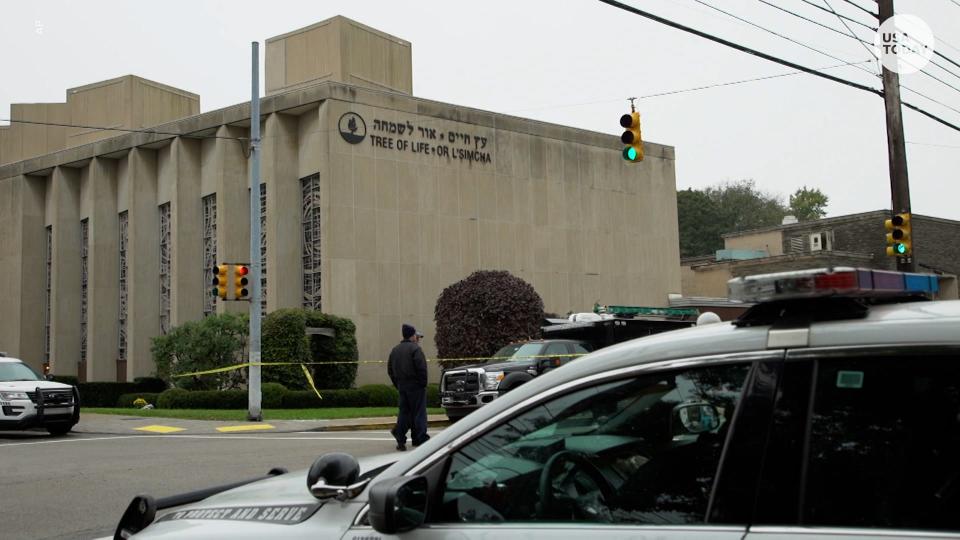Pittsburgh synagogue shooter is eligible for the death penalty, jury decides
The gunman convicted in the 2018 killings of 11 people at a Pittsburgh synagogue is eligible for the death penalty, a federal jury decided Thursday.
Robert Bowers, a 50-year-old truck driver from the Pittsburgh suburb of Baldwin, was found guilty last month of 63 criminal counts connected to the nation's deadliest antisemitic attack at the Tree of Life synagogue. During the penalty phase of the trial, which began June 26, jurors were tasked with determining if Bowers is eligible for the death penalty and whether to impose it.
Bowers' defense attorney, Michael Burt, said his client had history of psychotic, delusional, and paranoid symptoms and he was unable to form the level of intent required to make him eligible for the death penalty. Prosecutor Troy Rivetti said the government was prepared to counter a mental health defense and claimed Bowers had a clear intent to kill everyone he could find in the Tree of Life synagogue on Oct. 27, 2018.
For the jury to determine if the case is eligible for the death penalty, prosecutors had to show proof of intent and at least one aggravating factor. Rivetti said there were four aggravating factors, CNN reported, including that the victims were “vulnerable." Several victims' family members testified that their relatives had difficulty walking, hearing, or a lack of situational awareness.
Jurors found that Bowers intended to kill, substantial planning went into the attack and he targeted vulnerable and elderly victims.

Jurors must decide if gunman should get death penalty
Jurors will hear more arguments and evidence before they can decide whether to sentence Bowers to death. The sentencing phase of the trial is expected to last four to five weeks.
The jury will likely hear evidence of aggravating and mitigating factors, which could include statements from survivors, victims’ loved ones and the shooter's relatives.
Jurors must unanimously agree the aggravating factors outweigh the mitigating factors in order to impose a death sentence. If jurors sentence Bowers to death, it would be the first federal death sentence imposed during Joe Biden’s presidency.
Deadliest antisemitic attack in American history
Bowers was accused of killing 11 members of three congregations — Dor Hadash, New Light, and Tree of Life — who had gathered for Sabbath services in Pittsburgh. He also wounded two other worshippers and five police officers.
Authorities said Bowers fired about 100 rounds. During the trial, prosecutors presented evidence of what they called Bowers' long-held hatred of Jewish people and immigrants, including Bowers' social media posts.
Bowers’ defense team largely focused on avoiding the death penalty and called no witnesses during the trial. Bowers' attorney said during closing arguments he was not driven by religious hatred but an irrational belief that he had to kill Jewish people because of their support for efforts to help immigrants and refugees, whom he viewed as invaders.
Contributing: The Associated Press; Jeanine Santucci and Thao Nguyen, USA TODAY
This article originally appeared on USA TODAY: Pittsburgh synagogue gunman eligible for death penalty, jury decides

